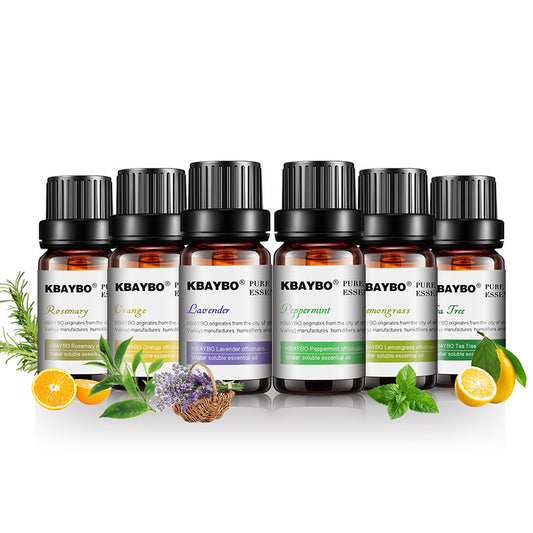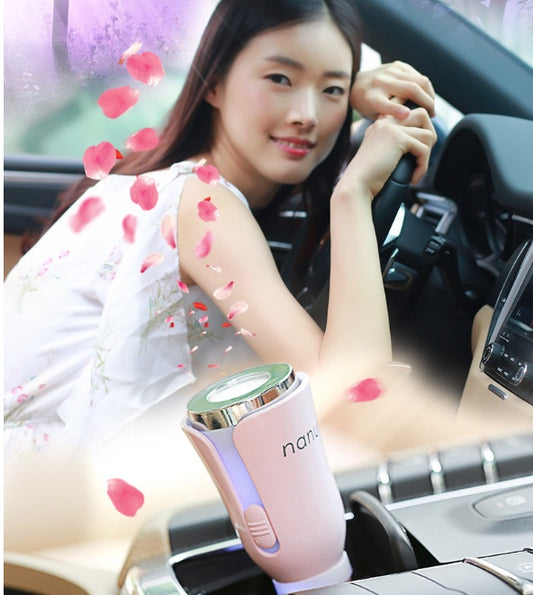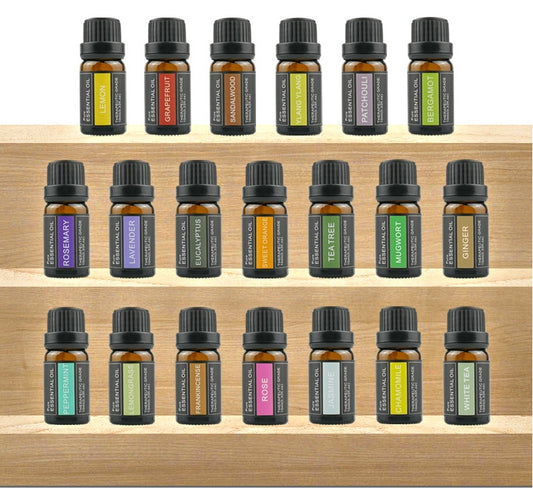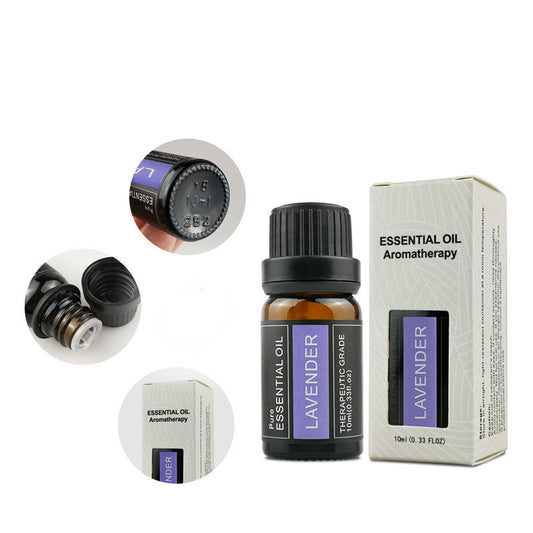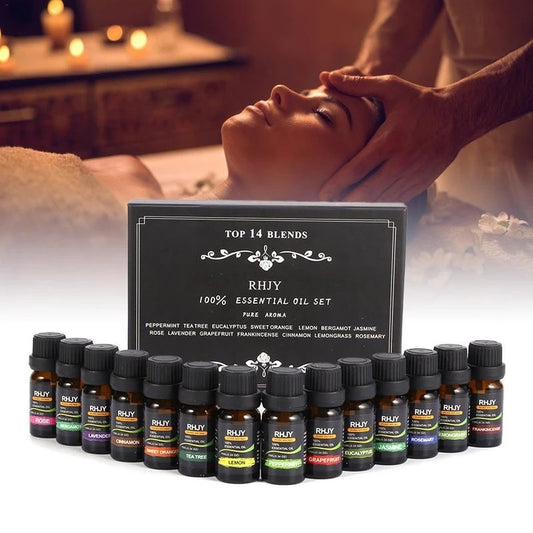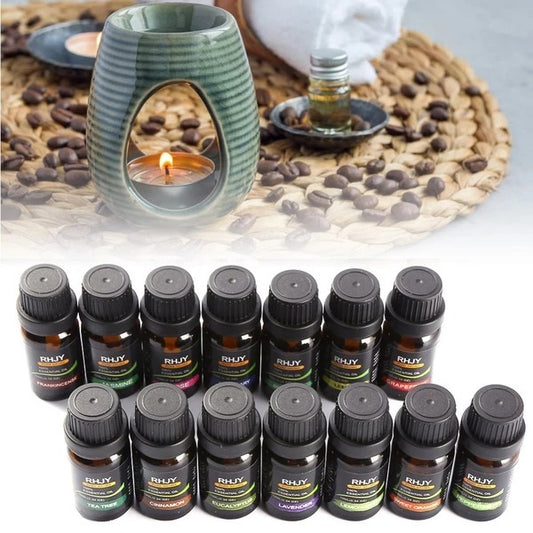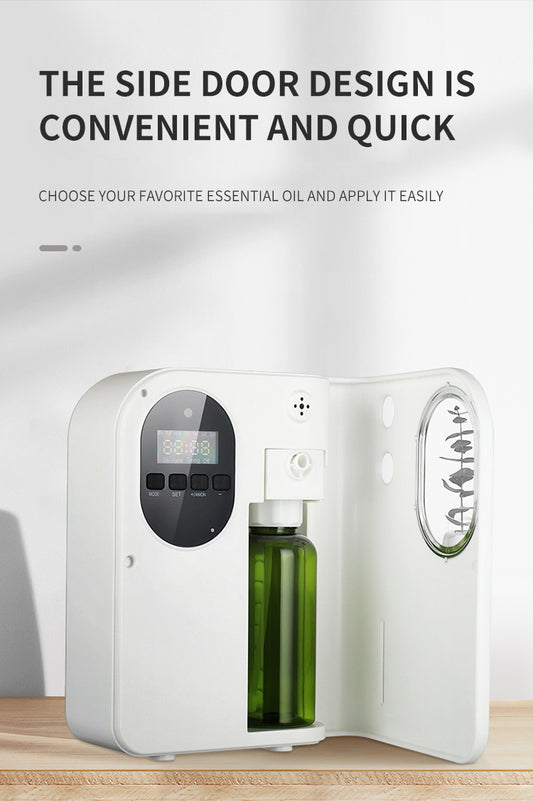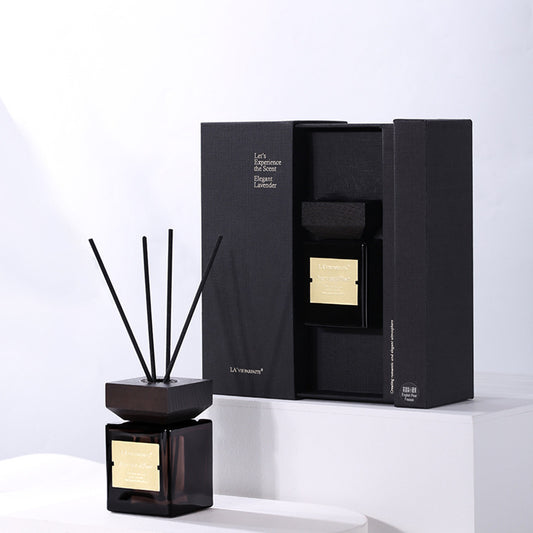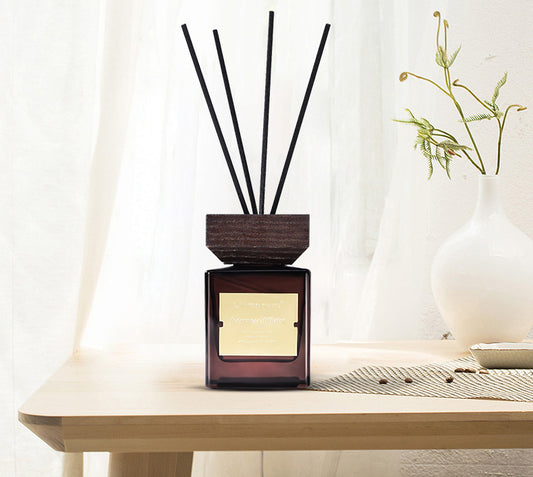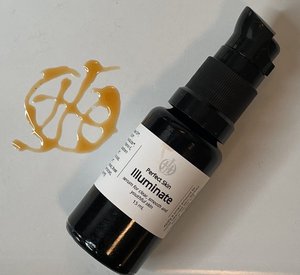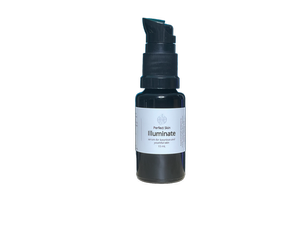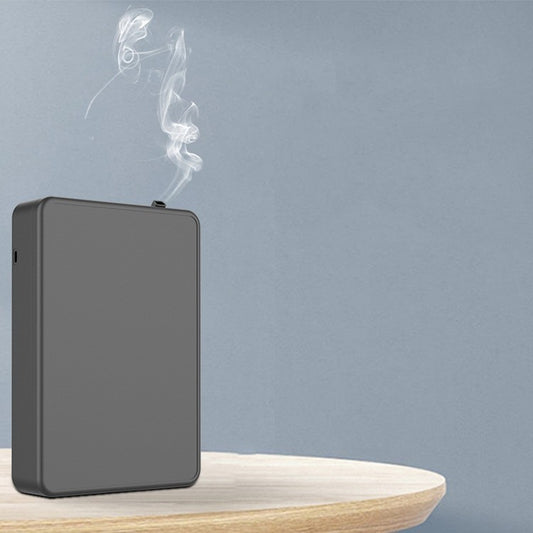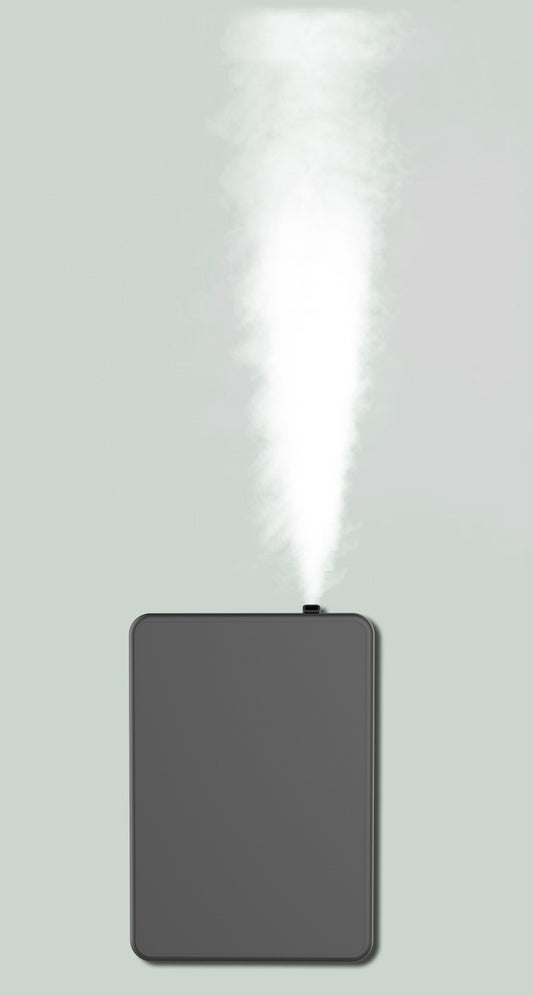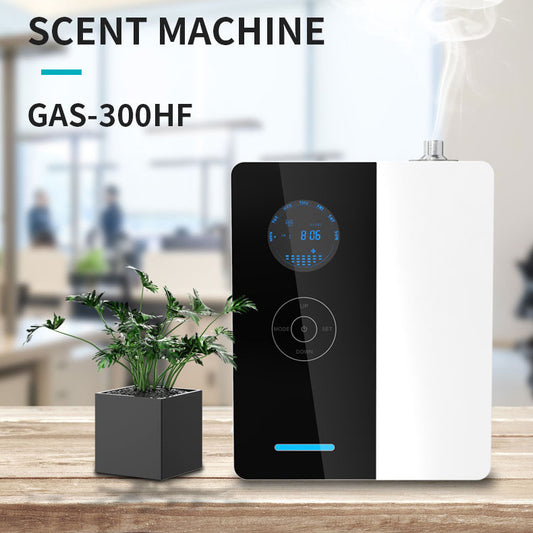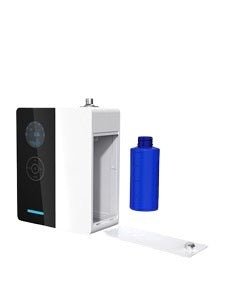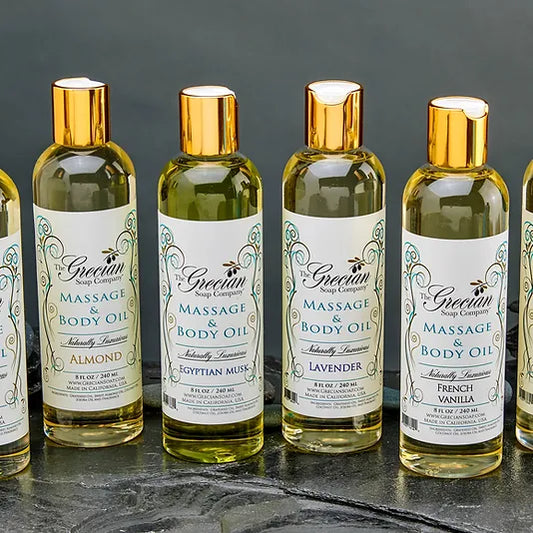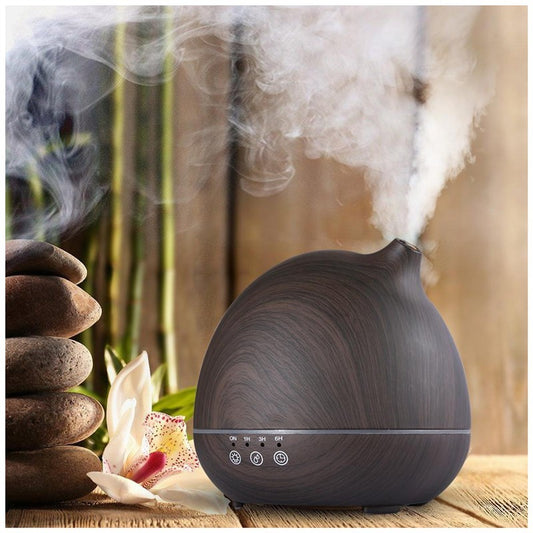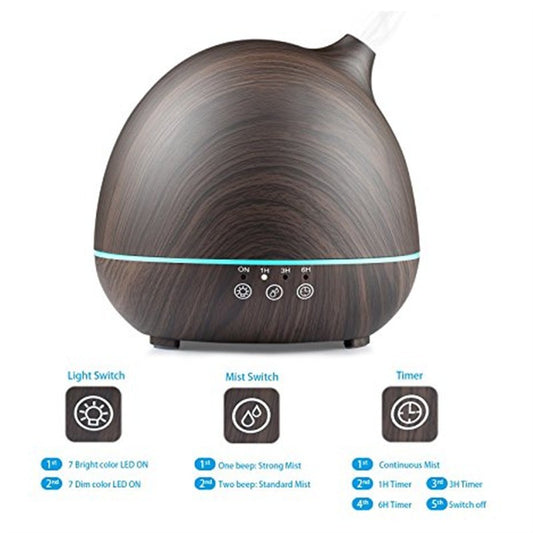Collection: Aromatherapy: A Guide to Healing with Scent
What is Aromatherapy?
Aromatherapy is the therapeutic use of essential oils, extracted from plants, to promote physical and emotional well-being. These highly concentrated oils contain aromatic compounds that, when inhaled or applied to the skin, can have a profound effect on our bodies and minds.
How Does Aromatherapy Work?
-
Olfactory System: When inhaled, the scent molecules travel from the olfactory nerves directly to the brain, particularly the limbic system, which controls emotions, memories, and stress responses.
-
Hormonal Balance: Essential oils can influence the production of hormones, such as cortisol (stress hormone) and serotonin (mood-boosting hormone).
- Skin Absorption: When applied topically, essential oils can be absorbed through the skin and enter the bloodstream.
Benefits of Aromatherapy
Aromatherapy is often used to:
- Reduce stress and anxiety: Lavender, chamomile, and bergamot are commonly used for their calming properties.
-
Improve sleep: Lavender and cedarwood can help promote restful sleep.
-
Boost mood: Citrus scents like lemon, orange, and grapefruit can uplift mood and increase energy.
- Alleviate pain: Peppermint and eucalyptus are often used for headache and muscle pain relief.
- Support respiratory health: Eucalyptus and peppermint can help decongest and soothe the respiratory system.
Popular Essential Oils and Their Uses
Lavender: Relaxation, sleep, stress relief
Peppermint: Pain relief, digestion, alertness
Eucalyptus: Respiratory health, pain relief
Tea tree: Antibacterial, antifungal
Chamomile: Relaxation, anxiety relief
Frankincense: Spiritual grounding, skin health
Using Aromatherapy
There are several ways to incorporate aromatherapy into your daily life:
-
Inhalation: Use a diffuser, inhale directly from the bottle, or add a few drops to a tissue.
- Topical application: Dilute essential oils with a carrier oil (like coconut or jojoba) and apply to the skin.
-
Bath: Add a few drops of essential oil to a warm bath.
- Massage: Incorporate essential oils into a massage for relaxation and pain relief.
Safety Considerations
- Patch test: Always test essential oils on a small area of skin before full application to check for allergies.
- Dilution: Dilute essential oils with a carrier oil when applying them to the skin.
- Pregnancy and breastfeeding: Consult with a healthcare professional before using essential oils during pregnancy or breastfeeding.
- Medication interactions: Some essential oils may interact with medications. Consult with a healthcare professional if you have any concerns.
By understanding the benefits and proper use of aromatherapy, you can harness the power of essential oils to enhance your overall well-being.
-
Aromatherapy
Regular price From $29.99Regular priceUnit price / per -
Aromatherapy Candle, Essential Oil, Ginger, Wormwood, Rose Sandalwood Essential Oil, Fragrant, Single Plant Oil, Fragrance Box.
Regular price $19.99Regular priceUnit price / per -
Car Aromatherapy Vent Aromatherapy Sheet
Regular price $29.00Regular priceUnit price / per -
Diffusers Essential Oil Set
Regular price $33.00Regular priceUnit price / per -
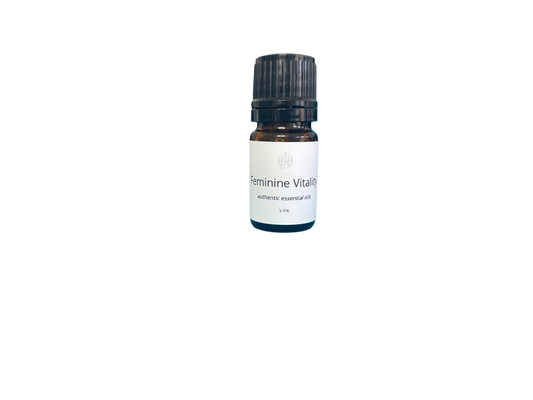 Sale
Sale -
Hotel Diffuser 160ml Automatic Aroma Machine Negative Ion Purification Air Diffuser Essential Oil Diffuser Scent Diffuser For Commercial
Regular price $153.00Regular priceUnit price / per -
Hotel Fragrance Wooden Lid Rattan Reed Diffuser Essential Oil
Regular price $60.00Regular priceUnit price / per -
ILLUMINATE FACIAL TREATMENT SERUM
Regular price $79.00Regular priceUnit price / per$82.00Sale price $79.00Sale -
Large Capacity Essential Oil Aroma Diffuser Ultrasonic Aroma Diffuser
Regular price $175.00Regular priceUnit price / per -
LCD Bluetooth APP Smart KTV Ultrasonic Aroma Diffuser
Regular price $499.00Regular priceUnit price / per -
NEW! Moisturizing Body & Massage Oil
Regular price $19.00Regular priceUnit price / per$25.00Sale price $19.00Sale -
Spa Ultrasonic Diffuser 400ml
Regular price $99.00Regular priceUnit price / per

